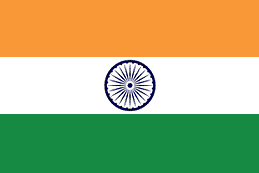Cultivation Practices
Basil
Basil is considered as the masculme herb because of its pungency. It is more pungent than garlic. It has been accredited loyal status among the herbs because of its medicinal properties. It is extensively used in Italy with tomato in almost all food preparations. It is believed that Basil was origanated from India.It requires warm shelter. The monasteries brought it to the Europe during 1548.
The plant :
It is hardy perennial herb attaining 15 cm in height. The leaves are green on the upper surface and on the lower surface purple tinge is noticed. If the leaves are slightly bruised delightful scent emanates. The stem is quadrangular
Planting
As it is hardy plant no special attention is required. Plant at 22 cm apart between plants and rows. Weeding should be done at regular intervals. When the plant attains sufficient height pinch off the top shoots to induce leaf formation and to prevent flower induction.The land need not be moist throught the year Drv period is essential between successive irrigation.
Harvest:
Harvest the plant before the plant begins to flower. Harvest on a dry day after the dew has dried off. Most of the volitle oils are found on the underneath the leaf. The leaves should be immersed with lukewarm water before drying. The leaves are slimy to touch .
Drying
Drying temperature should not exceed human body temperature (98.4 F). Dry in a dark airing cupboard with door partly opened in a darkend corner of the green house. Spread the leaf evenly under nylon net so as to allow ventilation. When the material is dried leaves can be stripped off to remove the leaves and pack in an tight containers.
Store the leaves in dark in air tight glass containers .
FOOD
Used in all type of foods in Italy. For the persons who cannot take pepper due to pungency they can take a combination of Basil,Parsely and Summer Savory.
DISCLAIMER: The cultivation practices of different spices given in the Website are taken from the publication of Indian Institute of Spices Research, ICAR, Kozhikode. Spices Board is not responsible for any discrepancy of the content in the literature.







